The
#TruthWarrior
Podcast
Podcast Index
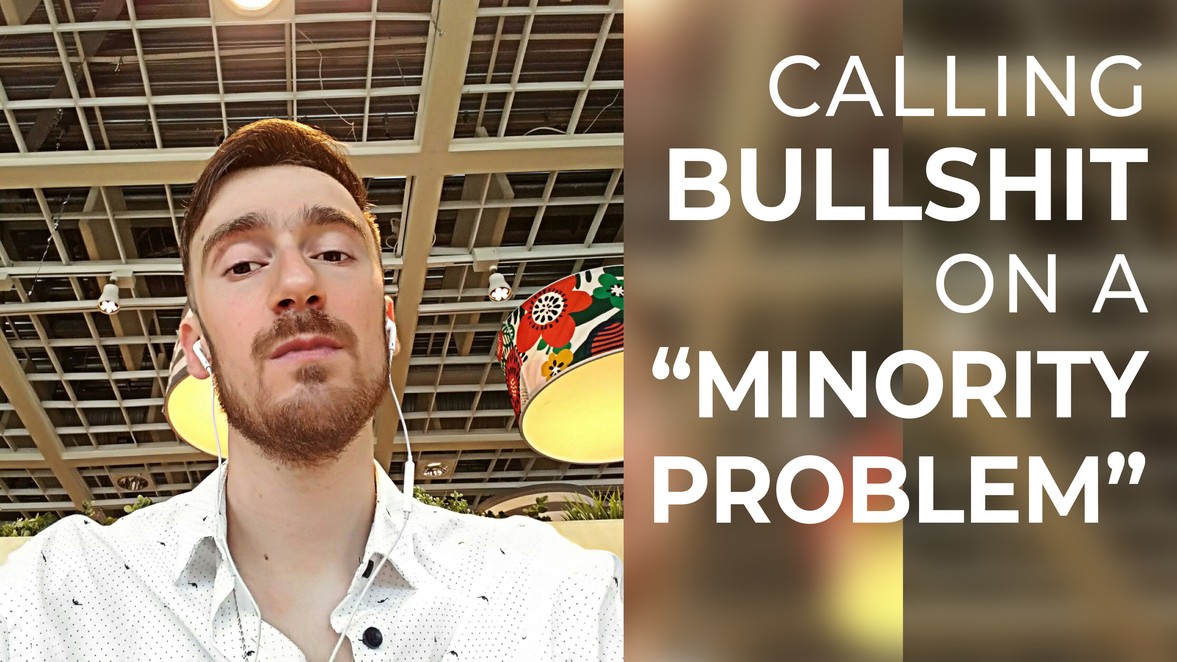
Why do we tend to rationalize systemic injustice and institutionalized oppression? One of the reasons is that we're conditioned to think about social issues as "minority problems" — issues allegedly affecting the numerical minority of the population. Let's see why this framing doesn't represent reality and why systemic mechanisms of injustice in the end negatively impact all of us — regardless of the privilege or disadvantage we have in the system.
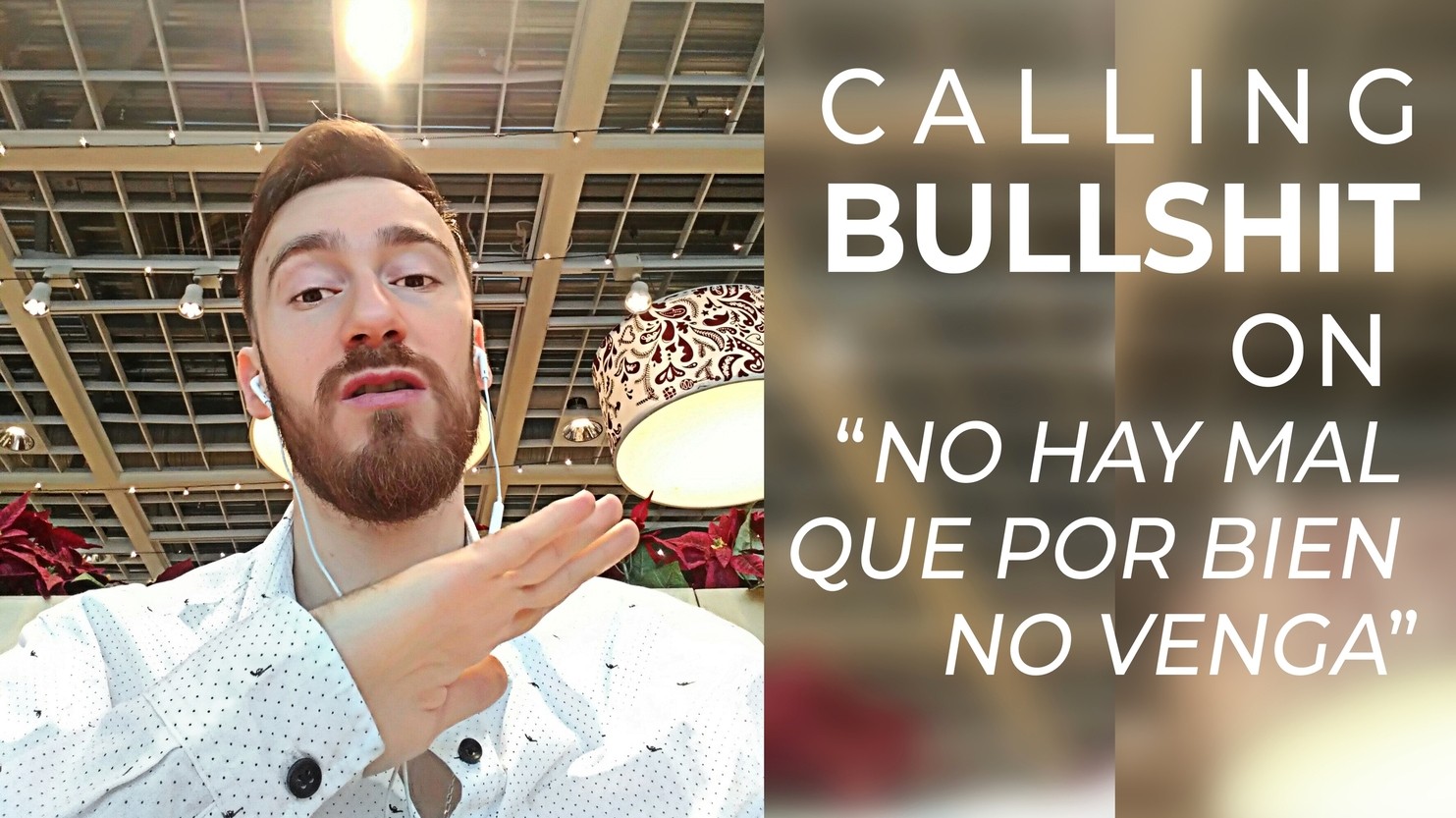
Have you ever been told that your suffering is happening for a good reason? Now, how often people telling you that were those who'd never gone through the same suffering? How many times did they rationalize, trivialize, and diminish your lived experience of trauma, instead of practicing empathy and going out of their way to change things for you? Finally, how often was that rhetoric ushered in on the platter of "spirituality" or "life wisdom"?
Rationalization is a well known defense mechanism. We often use it to protect ourselves against the uncomfortable truth, including the truth about systemic inequality and injustice — particularly, when we live on the upside of it because of our privileged social identities (male, white, straight, middle-class, native citizen, Christian etc.) and when those privileged identities allow us to get away with bullshitting others and denying reality.
Rationalization is also one of the most common behaviors driven by shame, and one of the greatest barriers to empathy. At the same, trauma is one of the hardest things to practice real empathy around — since trauma is neurobiologically experienced as a threat to survival or a basic human need, connecting to that experience within ourselves — even if we know it full well — is extremely painful. Unless our respect for truth and our spirituality are bigger than our need for comfort, it's easy to convince ourselves that someone else's trauma happens for some good reason (higher purpose/spiritual enlightenment/God's plan etc.) No matter how glaringly this argument contradicts reality, we will double down on it, in order to not get in touch with that person's traumatic experience and protect our ignorance about our privilege — especially in cultures that, like America, revolve around the tale of meritocracy. As these processes happen mostly subconsciously, we don't notice how rationalization of trauma moves us away from practicing the values that we passionately profess.
Join me in this conversation to explore in detail how rationalization of trauma shows up in our culture — and how we can speak truth in its face. Examples discussed include the aftermath of natural disasters in Puerto Rico, Flint water crisis, experiences of rape survivors, concentration camps for gay men in Russia, homelessness of LGBT kids in the U.S., poverty statistics in the U.S., and systemic oppression like #racism, #sexism, #homophobia, and #classism worldwide. We'll dissect the ways in which unexplored privilege and need for comfort sabotage our integrity, and talk about the right way to respond to other people's traumatic experiences. As long as rationalization remains our default response, there will be no room for critical awareness and no meaningful progress towards social justice. Rationalization of trauma is just as common in large-scale contexts (politics, church, celebrity culture) as it is in our individual relationships. Therefore, it's our common responsibility to identify it, no matter what kind of rhetoric is wrapped around it, and then eliminate it from our thinking and our relationships.
Referenced videos: Brené Brown on barriers to empathy at RSA
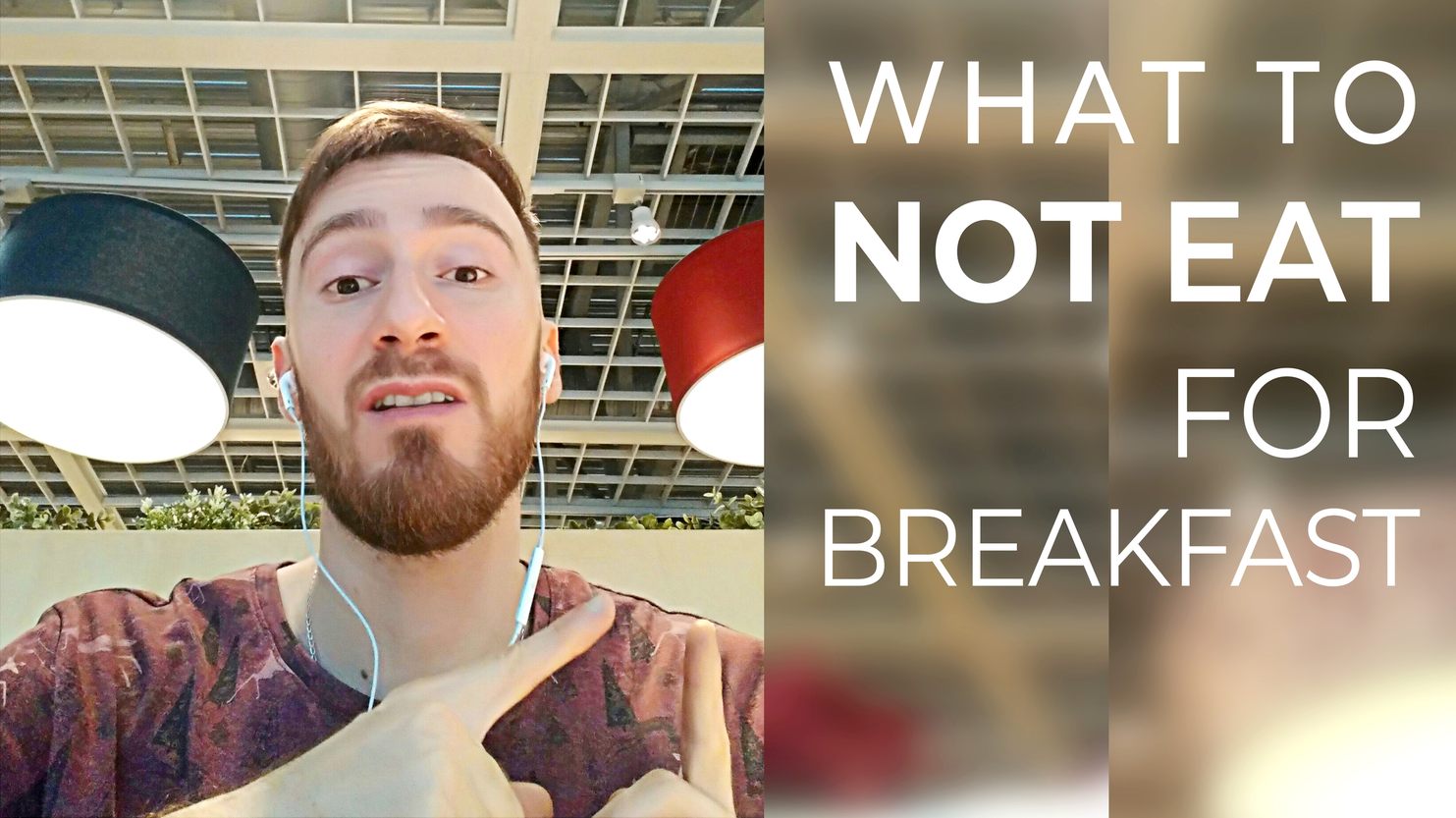
Today, let's talk about five most common (and most dangerous) fast-food psychology myths: about pain, perception, power, past, and personality. We'll see how these myths infiltrate our culture, why they're so prevalent and so easy to fall for, and how despite their eloquent promises, they in fact impede our personal development, critical thinking, and spiritual growth - let alone how they sabotage our integrity and corrode our most important relationships.
In a world ass-high in bullshit like ours these days, everywhere from politics to religion to academic science to social media, it's hard to practice resilience in the face of BS. It becomes especially crucial for the times of struggle, when the intensity of emotion may outweigh critical thinking and we become far more susceptible to gaslighting around our lived experiences. That's where fast-food psychology steps in and capitalizes on our vulnerability.
Understanding the bullshit that we're gonna be fed in such situations, both by people in our lives and through books, videos, podcasts, and other media sources, is what makes all the difference:
Will we get sold on another palliative remedy for our pain, or will we have the courage to rumble with the truth of our experience and own it to become the authors of our stories?
Evidence-based psychology doesn't offer quick fixes, one-size-fits-all advice, and certain, black-and-white arguments. However, it's exactly where you want to go if you're committed to doing inner work and creating meaningful change in your life.
So just remember how the quality of the food for thought we consume impacts the quality of our mental growth. When you're in struggle, remember to look for guidance and empowerment in the right places. And don't hesitate to walk away from places that are trying to feed you crap.
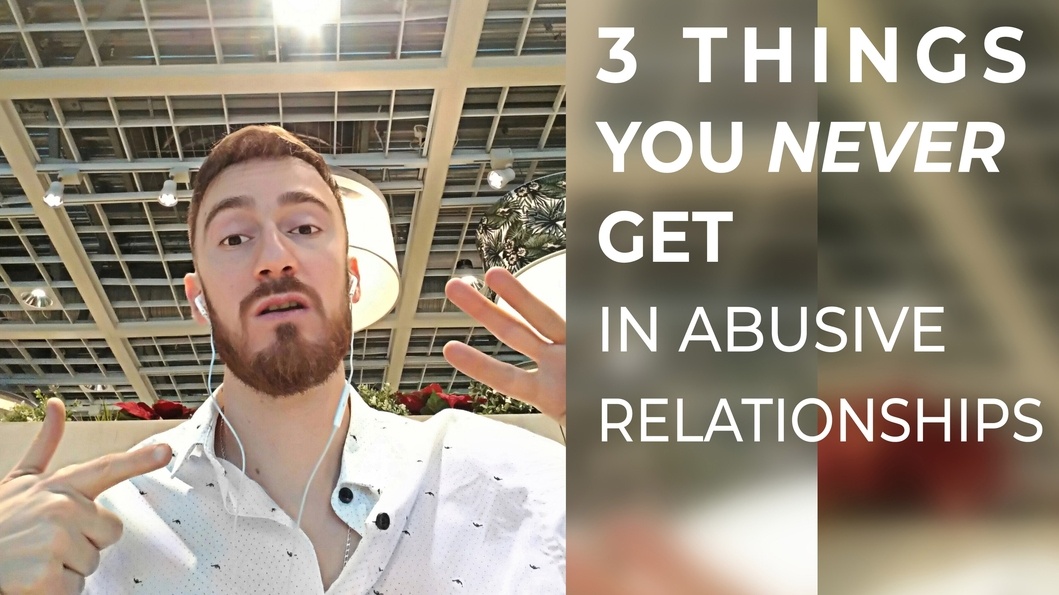
There are a lot of myths surrounding vulnerability in our culture. Many people think of it as weakness, and take your vulnerability as an immediate license to mistreat you. Other people, on the contrary, know that vulnerability is a brave choice, and they actively encourage you to be vulnerable with them — only to then use your vulnerability against you. Now, this is the definition of emotional abuse for me.
Throughout my life, I've experienced many abusive relationships — from friendships to romantic relationships to professional relationships. In many cases, the imbalance of power enabling abuse to happen resulted from the circumstances and social positionality I had no control over. In other cases, abuse resulted from my own poor boundary-setting skills — as those weren't modeled for me growing up, I acquired them quite lately in my life. I saw emotional abuse happen to many people around me as well, and with years I saw increasingly clearer how most of it was enabled and normalized by long-lived systems of oppression, like misogyny and racism and classism and homophobia and nativism. I saw how much of it directly resulted from corruption and power over. I saw what kind of trauma it wreaked in people's lives, and why it literally created a threat to their survival. But most of all, I saw that although emotional abuse becomes clearly visible in hindsight, it's hard to detect while it's happening to you. And hard as it is, this detection is critical. Emotional abuse works like a trap — the sooner you see it, the sooner you break free from it, and the less damage you end up with — especially when you know that societal systems will not hold the abuser accountable for they did because of their power, money, or other privileges.
So over the years of research and tough personal experiences, I found three signs of emotional abuse that remain readily observable and measurable — yes, even when your perception of reality is distorted by the typical gaslighting effects of abusive relationship dynamics. Once you see these signs, you can be quite sure that abuse is happening.
Compassion, clarity, and closure are three things that we have in healthy relationships that we never get in abusive relationships — and in this episode, we'll see how they can be tracked as reliable indicators of abuse.
We'll also discuss the particular reasons why detecting abuse is difficult at the time when it's happening to you. We'll address the common question of whether emotional abuse is always intentional. Finally, we'll see what to do when you cannot end a relationship with your abuser — two radically different scenarios here.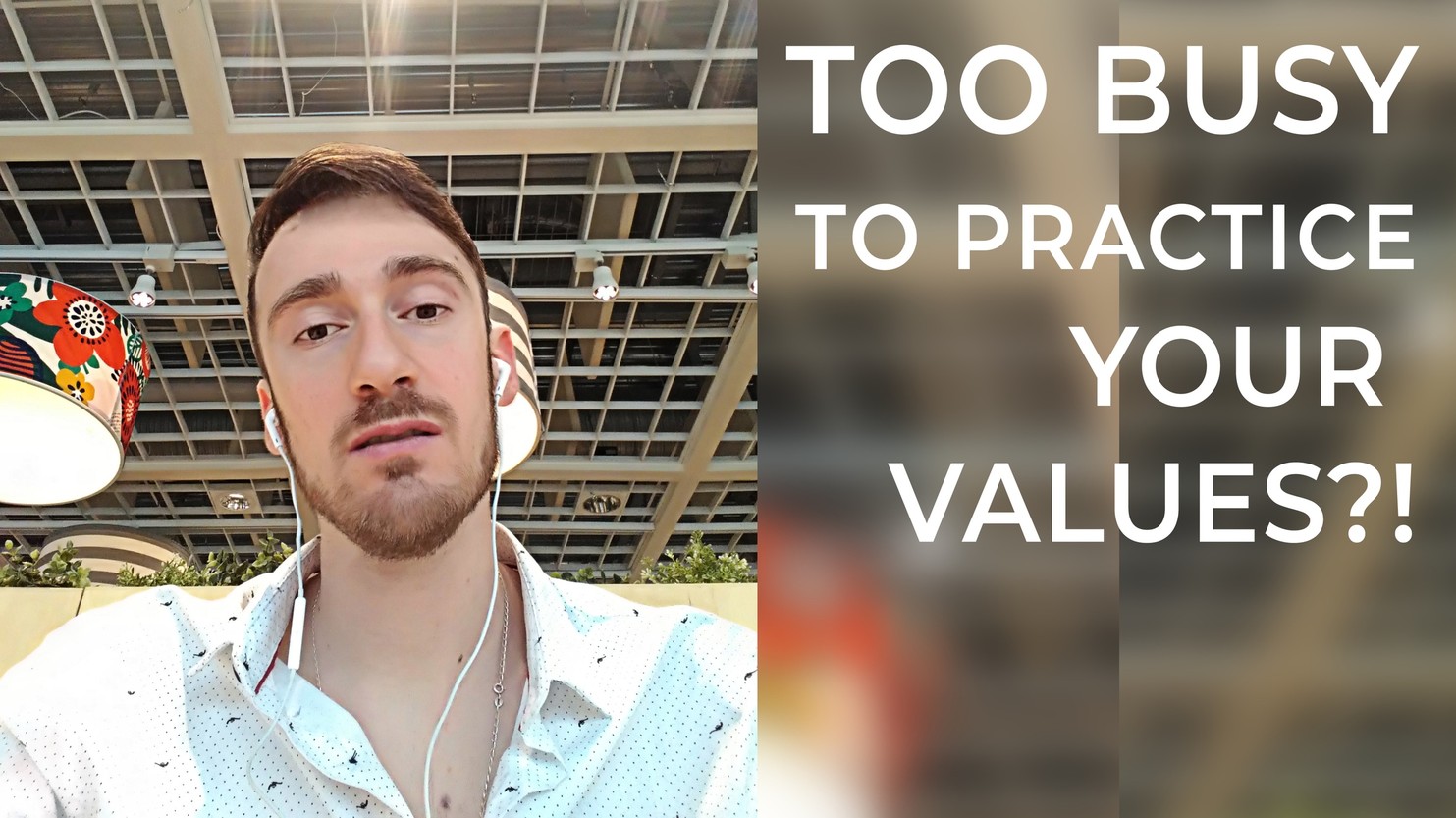
What are our values? They're ways of being and believing that we hold actually important in our hearts. They're things we prioritize, make time for, and use as a compass when faced with choices in life, big and small. They're things telling a lot about who we are.
And then the question becomes, what stories about who we are do we want to tell other people?
We want to be seen as good and trustworthy and deserving of connection. So sometimes, we profess values that make us look good on the outside but in reality we don't hold them within. It's especially common in people holding big privilege — as they become uncomfortably aware of their unearned advantages, they try to make sense of it by portraying themselves as good people. In the culture of meritocracy, eloquently professing values works like magic for creating and maintaining public image. But whether those values are real of fake is invariably revealed when the time and situations to practice them come. That's the hard thing about integrity: it's measurable and observable, and more so than we think it is.
Join me today for a conversation about integrity and clarity of values. Starting from the definition, we'll talk through different intentions of professing values: as a practice of authenticity, as a hustle to fit in and be in the trend, and as a way to attract publicity and make money. We'll see that after we profess something, it doesn't take long for life to give us a situation where it has to be practiced — and that's where, way too often, hypocrisy is revealed, and the denial/blame/rationalization/gaslighting shitshow starts towards the person who called out the inconsistency.
As people opt out of practicing their stated values in such situations, one of the most common lines of rationalization is "I'm too busy and I don't have the time." When they have big positions, big possessions, big connections — big privilege, in one word — they're licensed to feed this excuse to others as something plausible. But in fact, it reveals lack of courage, accountability, and self-awareness. Integrity is not about having the time. It's about making the time. As Marie Forleo points out time and again on her show, "If it's really important to you, you make the time. If it's not, you make excuses."
Yes, when you're an A-list celebrity or a politician, what you practice in real life may be completely hidden from the majority of your audience through the work of publicists, representatives and speech writers — or your own Hall-of-fame-level rhetoric. But your true colors still come out eventually. Some people, interacting with you in private and off camera, still get to see who you truly are. And the more effort you put into crafting a shining veneer of your personality, the more their trust in your inherent human worth will be undermined. If success is about money and fame for you, you'll be okay with it as long as the majority of your audience stays successfully brainwashed into believing in your honesty, spirituality, empathy etc. But if you define success by achieving purpose, building meaningful connection, and making real difference, hypocrisy just won't do it. You have to show up exactly as you are.
If you're not willing to prioritize something, stop professing it as a value, even if everybody around you does so.
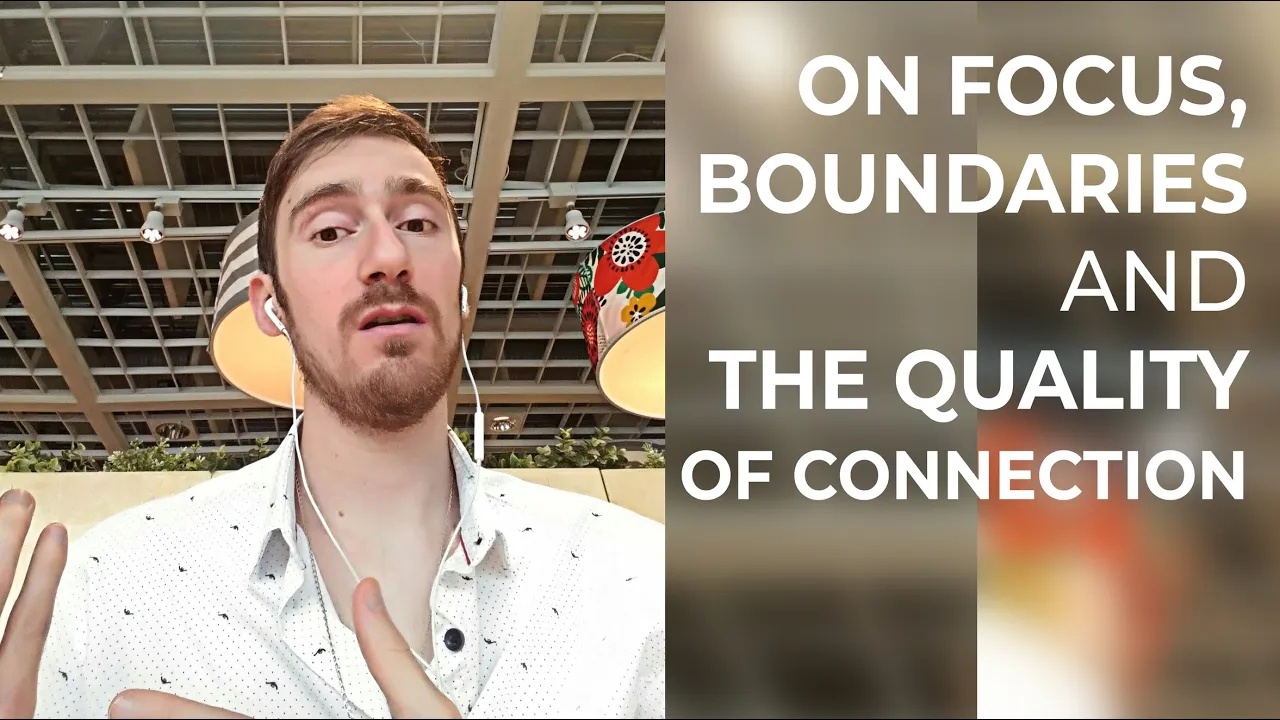
What is the difference between networking and building effective relationships? And why is the latter one of the skills separating successful people from all the rest? In business, should we aim to connect with more people superficially or with fewer people but on a deeper level? Why the ability to say No is crucial to relational and professional success? Let's explore all of that in today's conversation.
Referenced article on Inc.com: https://www.inc.com/marcel-schwantes/...
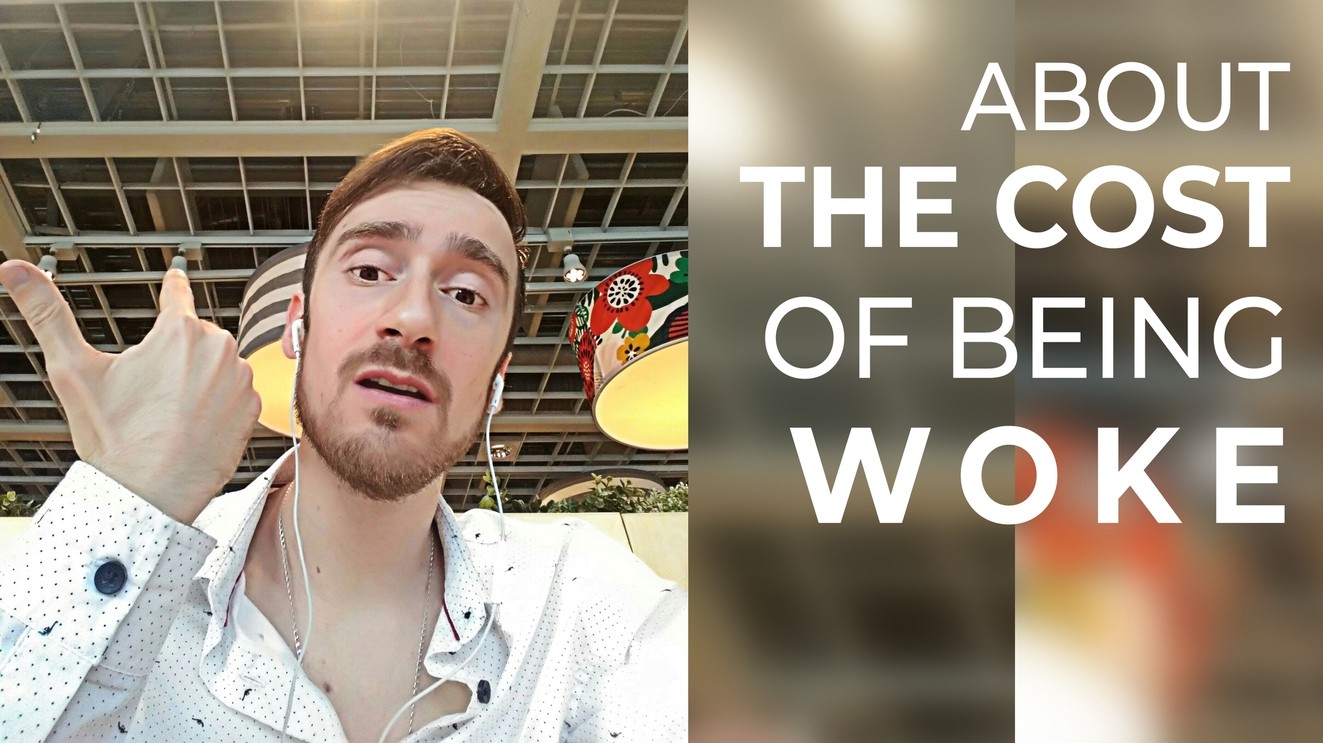
Being truly woke — whether physically, socially, or spiritually — often comes at the cost of big discomfort. With another contextualized story from my cultural observations, let's explore why awakening often looks like a tempting alternative to woke, especially when we live on the upside of inequality because of our identities or circumstances. Let's see why awakening, for all the comfort it promises, in fact leaves us bankrupt and self-defeated, and only woke enables us to do the meaningful work that needs to be done — both within ourselves, with other people — and thus effect lasting change in the world.
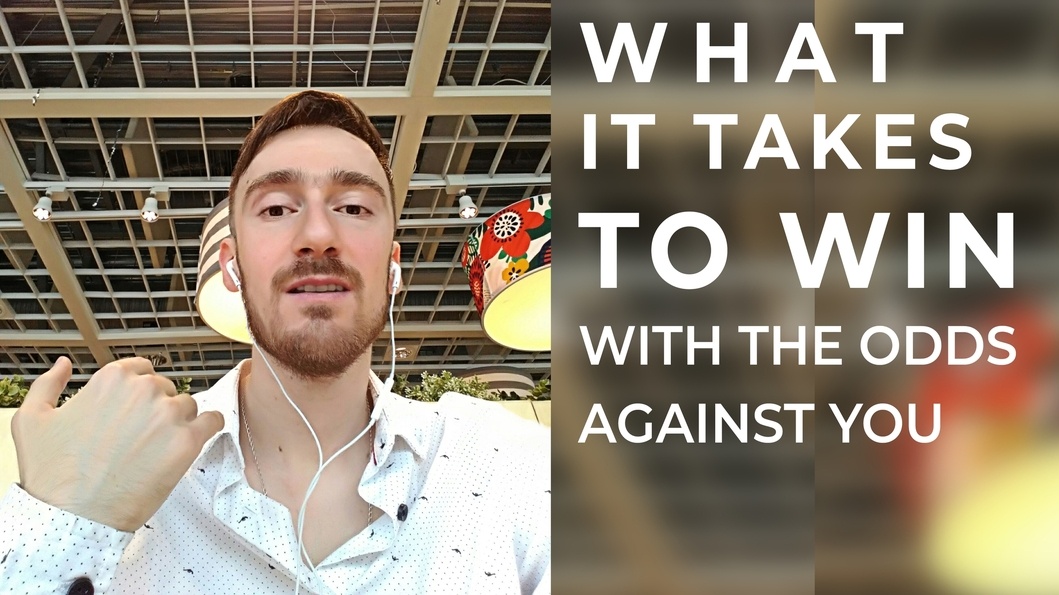
A couple years ago, one video went viral on Facebook. It showed a group of American college students, gathered up to race for a $100 bill. When they all came to the starting line, the coach began to ask them questions about their socioeconomic circumstances and their familial background. Based on their answers, some students were allowed to take a step forward. By the end of the survey, many had a huge head start — and that's where the whistle got blown and the race started.
This activity was an incredibly accurate metaphor for privilege — the set of unearned advantages each of us has in life, through aspects of our identity, our background, and other random things that have nothing to do with our merits or our efforts. Depending on them, we become more or less likely to fare well in the race called life.
In the March of 2013, amidst the unfolding first episode of clinical depression, I got a life-changing experience of running a literal, physical race against the guy who had huge privilege over me in many aspects — from physique to health to socioeconomic status. In this video, I wanna tell y'all what it took me to win that race despite overwhelming odds — and why the lesson drawn from it literally saved my life one year later.
This race called life is not a fair one. But everybody is allowed to run it. You don't get to choose how big of a head start you have or how much trauma drags you back. You only get to choose whether or not to show up in the race and whether or not to stay in it. And, as it turns out, that choice makes all the difference.
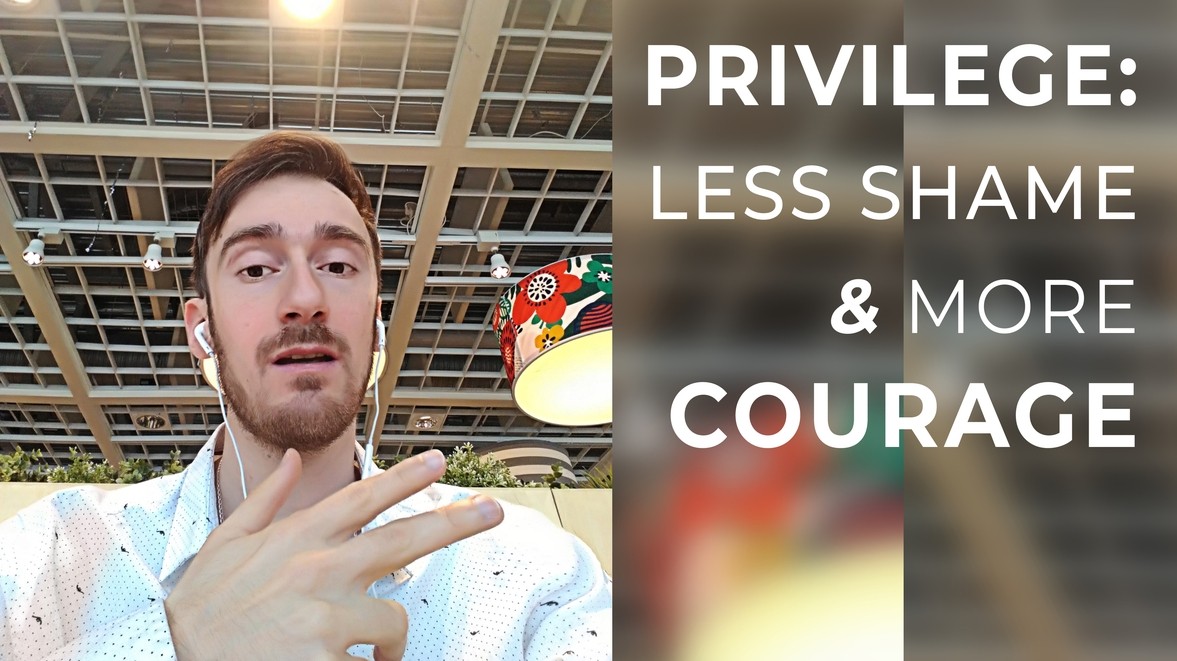
We hear the word 'privilege' being used a lot these days, and to many people it sounds offensive, or at best controversial. But what if we take shame, anger, and defensiveness out of the conversation and just try to understand what privilege is, where it comes from, how it works, and how it shapes our particular life experience?
Privilege is simply a set of advantages, rights, freedoms, and opportunities that we have in life that are not a result of our work or our effort. In other words, privilege is about random benefits that we get that other people don't get for no fault of their own.
Make no mistake: we all have privilege. There are far too many dimensions of inequality in life, and randomness plays out independently in each of them.
There can be neither shame nor pride in having privilege per se — because we did nothing to get it, just like people different from us did nothing to be put at their disadvantage. However, shame comes into play in a culture of meritocracy, where we're conditioned to believe that what we end up with in life is mostly the result of our individual effort. This simplistic notion moves us away from seeing, naming, and dismantling systems of oppression in our culture — systems that, through wasting human potential, end up hurting all of us both economically and spiritually.
Understanding privilege is key to to practicing real empathy and growing our capacity to effect meaningful, lasting social change. We don't get to choose our privilege, but inherent in it we get big power that we get to choose how to use. When our privilege remains unowned and unexplored, we're most likely to abuse it. When we own and explore it, we become able to use it constructively so we can bring about more justice and prosperity.
Beware: Privilege awareness cannot be passively absorbed. Owning and exploring our privilege takes vigilance, effort, curiosity, discomfort, self-awareness and self-compassion. It takes quite an amount of our emotional and intellectual bandwidth, and it's still worth it. Because the only alternative to owning our privilege is having our privilege own us. Having it move us away from our values, sabotage our relationships, and stunt our personal growth.
We freakin' deserve better.
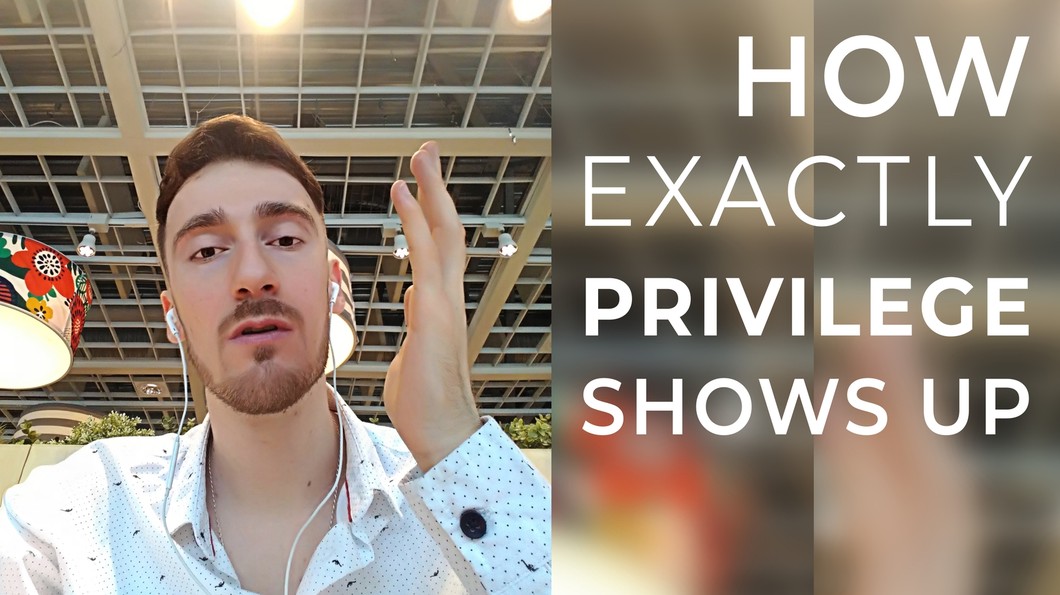
How specifically does privilege manifest in the way we think, act, and treat others? Given its insidious, unconscious nature, how can we detect situations where privilege effectively keeps us away from practicing our values?
In this video, let's discuss four functions of privilege — the most common, observable, and measurable ways in which privilege affects how we walk through life and navigate relationships. The order of these functions corresponds to degrees of awareness about our privilege - from zero (1st function) to high (4th function). Paradoxically, increasing awareness doesn't guarantee freedom from dangerous cognitive patterns driven by privilege — because shame underpins each of them.
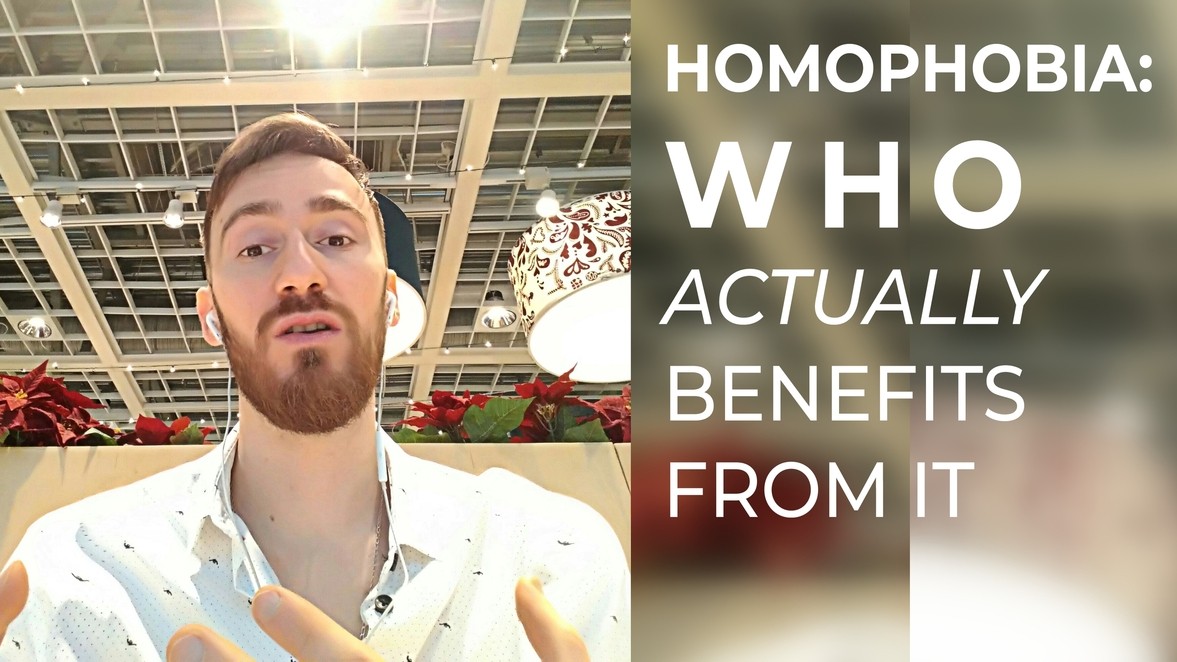
Concluding the series Critical Awareness About Homophobia, let's talk about one of the most controversial themes related to homophobia and heterosexism: who benefits from them and how? Given the evidence from previous episodes, we know that society as a whole, and cis-gender heterosexual people as its majority, don't benefit from these long-lived social problems. Why then have they remained in existence for so long?
Examining the political leadership of the U.S. and Russia in the recent years, we'll track the way homophobia benefits systems of power over and people at their top globally — regardless of stated political and cultural differences. At 30:13, we'll explore why there are actually gay folks who benefit from homophobia in measurable and observable ways (counterintuitive as that might sound) and who use their power and influence to maintain the status quo. We'll look at the importance of intersectionality and segregation for understanding the large sociopolitical role of homophobia and discuss meaningful ways to hold beneficiaries accountable.
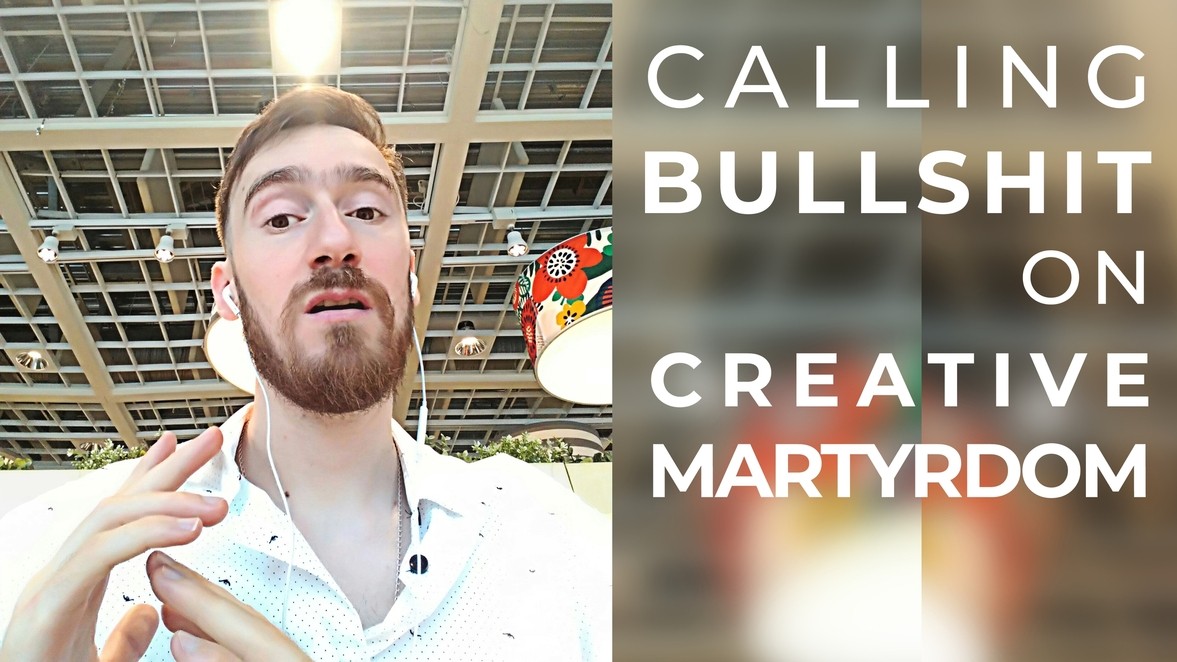
Artistic legitimacy is born out of suffering. How often do we hear this cultural message? How often do we see stories, videos, and tales romanticizing trauma, addiction, and mental health struggles and portraying them as sources of creativity? We don't even realize how dangerous this rhetoric is because it's so commonplace. And, often remaining unaware, we re-transmit it to others. Believing that trauma fuels creativity and brings forth our best talents reflects a gross misunderstanding of trauma, most often — as a consequence of having never really experienced it. This belief correlates with a privileged life experience in which trauma is misconceptualized and trivialized as frustration, stress, and disappointment. Talking about "spiritual enlightenment" in the context of trauma becomes a form of spiritual bypass. A way to avoid critical awareness. A way to deny structural barriers and systemic oppression that lead to the enormous waste of creative talent around the world. A way to never practice empathy towards people who never had the same opportunities, freedoms, and rights as you've had for no fault of their own. Living my entire life under multiple, intersecting layers of trauma, and being clear about my story throughout the networking efforts for my book, I cannot tell you how many times I heard this BS rhetoric about my trauma being "the source of my amazing creative talent" — invariably from the mouths of upper-middle-class, predominantly white Americans. Every time, they employed this rhetoric to make themselves comfortable with denying me help and support that they had the power to extend through their privilege — because, whether I liked it or not, my story effectively exposed the unearned nature of their privilege and called bullshit on the fairy tale of meritocracy, which they had their self-worth entirely built upon.
Join me in this conversation to explore how creativity, vulnerability, and trauma are contextually related. In this video, I share my journey as an artist coming from a place of intersectional disadvantage, which is not very obvious because of my Whiteness, masculinity, cisness, and a university degree. For the majority of my life, my talent has been stifled by multiple layers of trauma. My creativity has been handicapped by multiple layers of oppression. At the same time, I got effectively brainwashed — by the culture, by the church, and, most recently, by privileged American people — into the belief that my trauma happens for some good reason and in fact nourishes my creativity. One of the most important messages I want to leave to the world is that that is a toxic, barefaced lie. The only reason behind that rhetoric was for people in my journey to keep their power and privilege to themselves and deny me the opportunity they could share. The same dynamic is clearly observable in the larger culture. Comfort gets chosen over truth, and bullshit gets employed as a nice, bleached-smile way to keep oppressing those already at huge disadvantage.
I don't have tons of money for advertising budgets and consequently don't get millions of views and followers — but if you followed my journey from the beginning and saw my content unfold over the years, you know that it's not because I ever lacked talent or saved effort, but because effective promotion on social media these days mostly depends on privilege (and people who have it ferociously deny it).
What I do have, though, is a heavy heart. It's heavy because it's full of truth.
And since creativity is the love of my life — the one that oppression has for years blocked me from being with — I have to tell the truth about Her. I have to say that trauma is Her abuser, not Her loving partner or parent. I have to call BS on creative martyrdom and the arguments of privileged people who romanticize trauma and mental health issues. I have to expose how this rhetoric normalizes systemic injustice and the enormous waste of creative talent globally. I'm clear about this: as artists, our job is not to be bullshit-tellers. Our job is to be truth-tellers. Yes, even our truth makes the world uncomfortable. In fact, that's where our art can make the biggest and the most needed difference.
The referenced story of Hollywood talent agent: https://jorgeoros.com/metoo
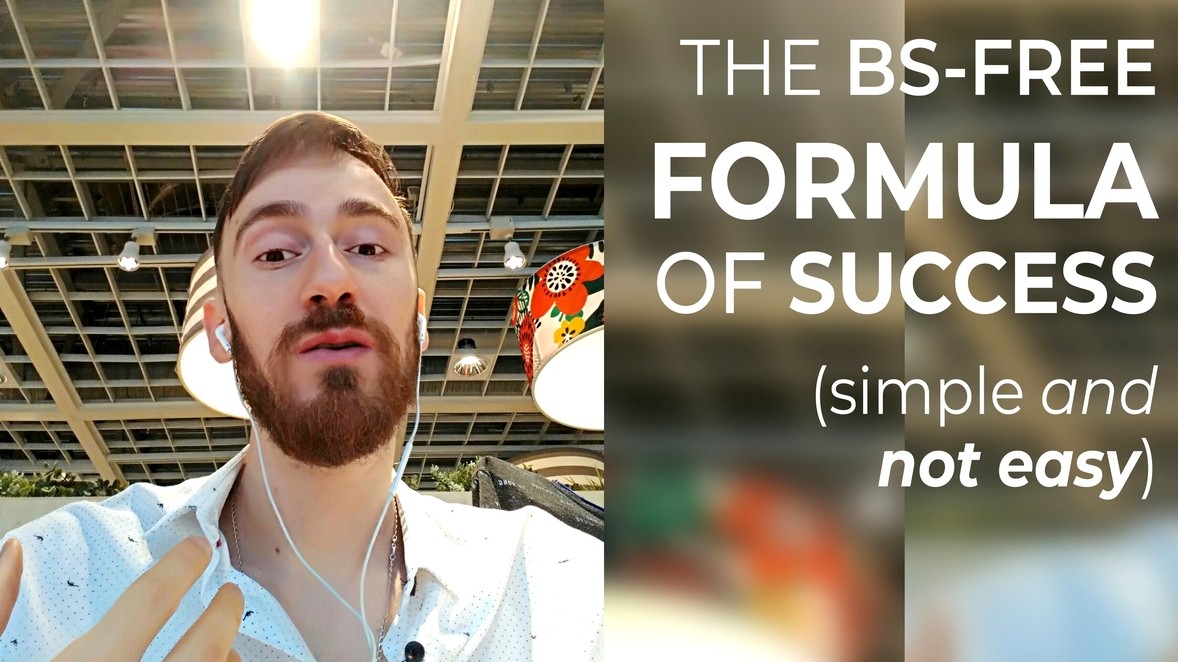
How do we define success in today's culture? By default, the concept of success is based on how closely our life meet major societal expectations — around money, education, career, status, education, relationships, family. Both traditional media and social media are inundated by "stories of success" that are, more often than not, fairy tales exploiting overhyped cultural stereotypes like individualism and meritocracy, engineered with the aim to sell us something or sell us on something. But if we turn away from the screens and look at people in our real lives, we surely can name many folks whose lives on the surface fit the cultural construct of success who nevertheless feel miserable. Why is that so? Let's find out why real success is defined internally within each and every of us, and why therefore there can be no universal recipe for it.
Let's have a BS-free conversation about what informs real success — and what gets in its way. This episode of #TruthWarrior is one of the most substantial so far — it's packed with transparent, actionable concepts and real-life examples, dissecting success as a product of multiplication of three factors: talent, perseverance, and luck. We'll talk about innate vs acquired talent and the reason why we usually doubt ourselves the most around our most precious gifts. We'll talk about perseverance as a cognitive process and what it takes to stay in the arena and keep going for our dreams in the face of failure, trauma, and systemic oppression. We'll explore the role of luck and its complete dismissal in cultures that rely heavily on the myth of meritocracy — and stories of success eloquently told by many Western people with little to no understanding of their privilege. We'll talk about access to economic opportunity as an important aspect of inequality, making lots of human talent go to waste in the majority of the world. Finally, we'll see how the deficit of luck and privilege can be outweighed by a surplus of perseverance — which is the only factor in the formula of success that we fully get to control.
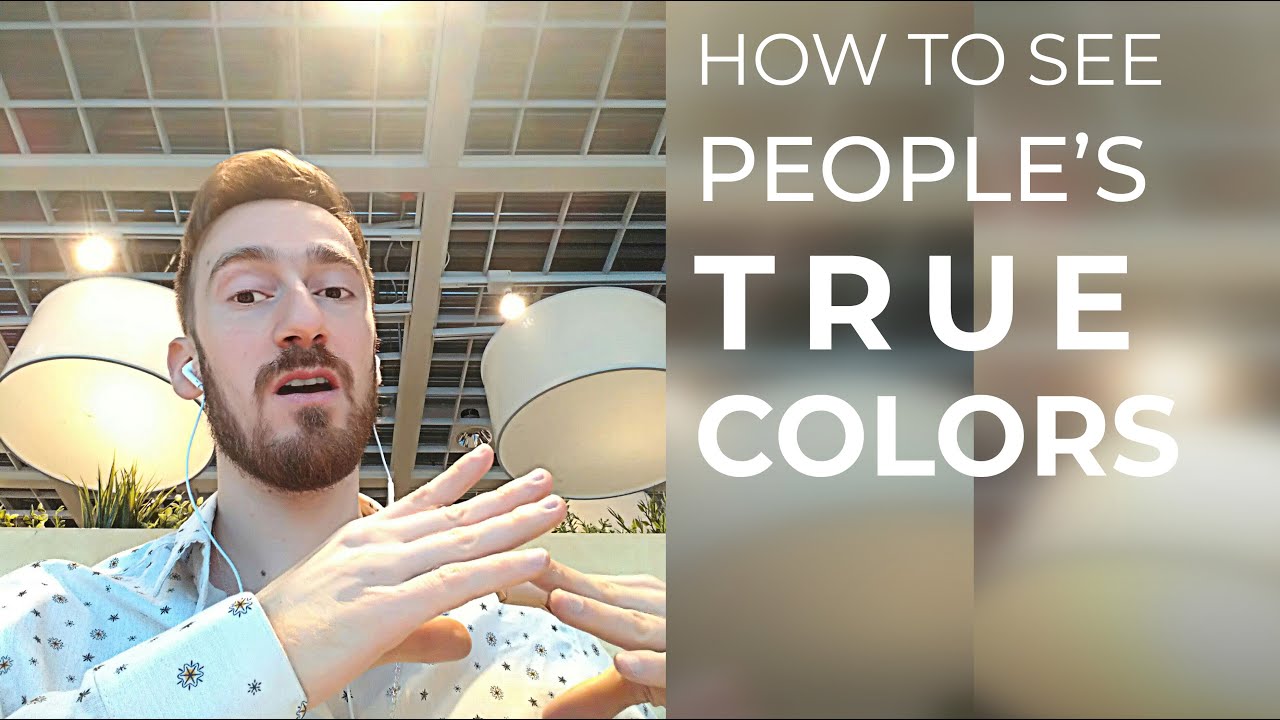
Well Jorge, it's not my experience with that person. I cannot tell you how many times I heard this phrase, and experienced its immense gaslighting effect, when sharing another story of being betrayed, abused, or cheated by someone that I and the person I was sharing with both knew. At first, such responses made me question my own reality: did the betrayal, the abuse, or the cheating really take place, or is it just my perception? Maybe the problem was within me — like, I was "too sensitive", as I've been told hundreds of times?
This bullshit thinking was both related to my individual background — being raised in a household where gaslighting was a relational constant — and also to the cultural messages of fast-food psychology, positing that "everything is perception" and dismissing the uncomfortable work of exploring and acknowledging tough facets of reality.
But as critical thinking kicked in, I understood that the harmful behaviors I talked about were real. Then another tough question emerged: Why did this person who hurt me appear so good to others? Why betrayal, abuse, cheating, hypocrisy, manipulation were my experience with this person, but not everybody else's experience with them?
One answer, coming from clinical psychology, would be: "Because narcissists are very skilled at looking good for those they need to look good for." With years, though, my understanding of this evolved with a broader perspective — one coming from the field of social work. From understanding interpersonal dynamics through the prism of oppression, privilege, power, and perceived social hierarchy. Although I understood it, I couldn't verbalize it until I came across this sentence in the novel The Fault In Our Stars:
"You can see who people really are by the way they treat waiters and secretaries."
HOLY SHIT. This was it. This was what I experienced my entire life. Technically, I've never been a waiter or a secretary, but the dynamics were exactly the same: every time I got abused, betrayed, or cheated, this person was in the position of privilege and power over me. This is what made them feel entitled and licensed to do anything and able to get away with it. This is what gave them the full freedom to show their true colors towards me — because they knew there would be no consequences.
And every time I tried to bring about accountability — by telling others about my experience — I wasn't believed because the people I shared with never had the same social positionality I had. In truth, they never had the same experience with my offender — not because my offender was a good person, but because their level of power and privilege was the same as, or even higher than, that of my offender. Ironically, this encouraged me to reach out to them in the first place — because from my underprivileged position I had no power to bring any accountability. What I didn't understand is that from their spot in the power hierarchy, the true colors of a person fully transparent and readily exposed to me were completely invisible. By nature, Social Pyramid has One-way Transparency, hence the abbreviation The SPOT Effect. When you're looking at a person from below in terms of power hierarchy, their dirty, stinking underwear is readily visible. They don't hesitate to spit on you and shit on you. When you're looking at the same person from above, or from the same level, the only thing you get to see is their nice, phony, bleached smiles.
So before dismissing someone's traumatic relational experience with someone else that we know, before denying them empathy and making them question their reality, practice some critical awareness. Think about power, privilege and social positionality — and how they explain why the behavior of the same person towards you and towards them can in fact be so drastically different.
And finally, ask yourself: if this person practices kindness, empathy, honesty, and care towards me and abuse, betrayal, hypocrisy, and manipulation towards another, then how genuine is what they practice towards me?
Can genuine kindness, empathy, care, and honesty be selective? Can their practice depend on social positionality or other external factors?
The answers, although quite tough, are very obvious.
A related piece of my #MeToo story: